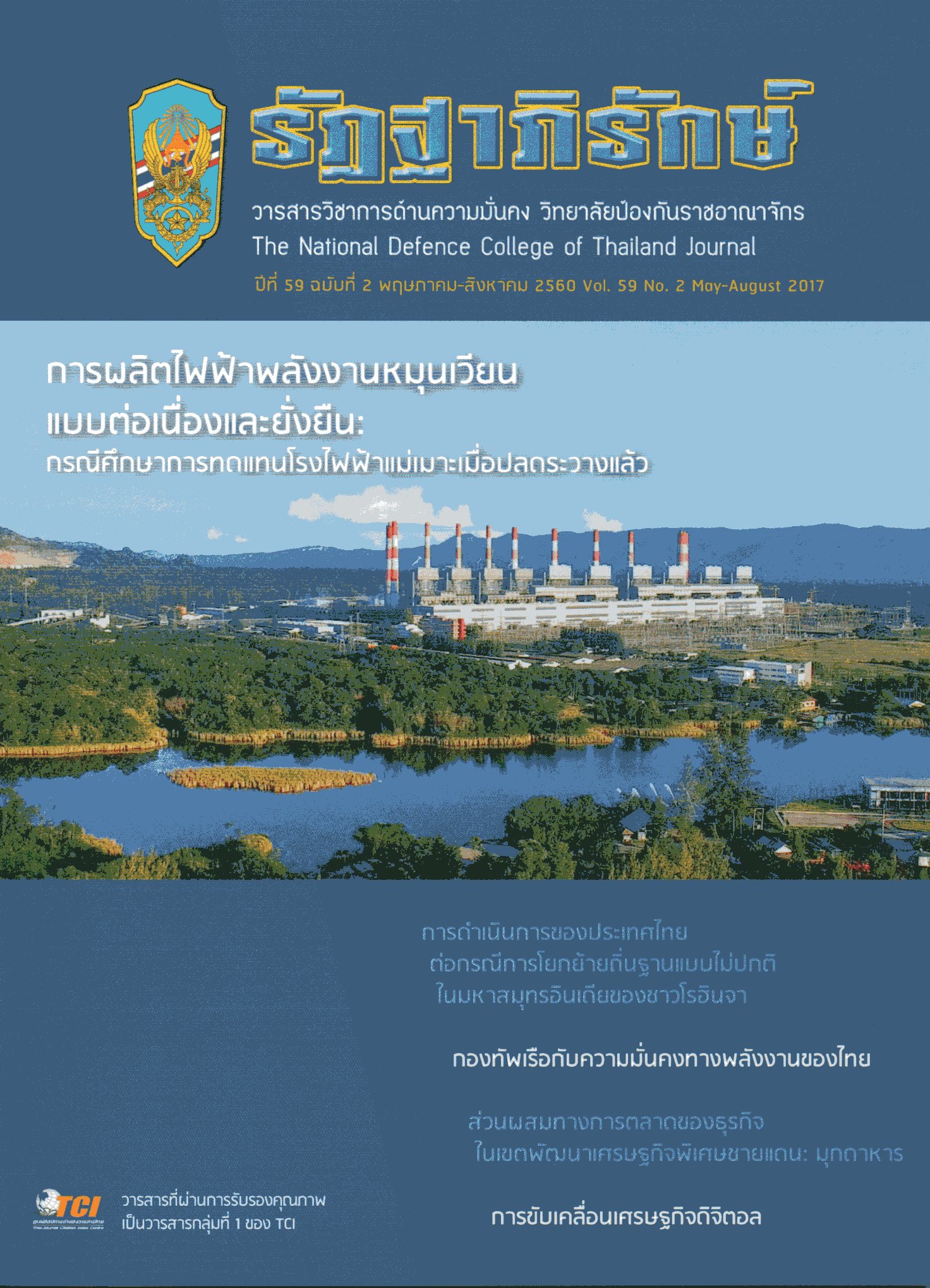Non-intermittency and Sustainability in Renewable Energy Generation
บทคัดย่อ
The objectives of this research are to study applications of energy storage systems for
enhancing the non-intermittency and sustainability in renewable energy generation as well
as to propose plan for developing renewable power plants and an energy storage system for
substitution of the Mae Moh Power Plant in Lampang Province of Thailand after its
retirement in 2051. This research was conducted in a qualitative approach by gathering
information from various sources including literature review, secondary data collection and
experiences of researcher and experts. Subsequently, gathered information was analysed to
define configurations of the renewable power plant and energy storage system as well as the
analysis of the economic feasibility, energy security, environment and social benefits.
The main problem focused in this research is that power generated from renewable
energy resources such as solar and wind are intermittent and varying. The amounts of power
generated from these energy sources depends strongly on weather conditions. As a result, it
is impossible to control the amounts of power generated from intermittent renewable energy
and to balance with amounts of power required by the load at any time. One promising solution
to tackle this problem is to store power generated at one time in energy storage systems and
use it at another time when renewable energy cannot be generated.
The problem of the intermittency of renewable energy is the main impediment of increasing
penetration of renewable energy in the Thailand grid system in the near future. It is therefore,
necessary that the country execute an energy storage development plan as soon as possible
to mitigate any difficulties related to this problem.
According to the research, after the retirement of the Mae Moh Power Plant and Mine,
areas of the power plant and mine are highly recommended to be developed to the system of
a 1,500-megawatt Solar Power Plant and a 1,000-megawatt Pumped Hydro Storage. The Pumped
Hydro Storage in the system could serve as an energy storage that charges energy from the
solar power plant during the day and discharges energy during the night when the solar power
plant cannot generate electricity and when power demand is relatively high. Capital investment
of the system is estimated to be around 82,000 million THB. Projected internal rate of return
(PIRR) is as high as 12.29%. In addition, the system could help to reduce emissions at the rate
of 1.03 million tons of carbon dioxide equivalent per year compared to convention electricity
generation from fossil fuels. Due to the aforementioned reasons, this system has the
potential to be the model of 100% renewable energy generation, able to generate non-intermittent
and sustainable power in the gigawatt range.
ดาวน์โหลด
เผยแพร่แล้ว
ฉบับ
ประเภทบทความ
สัญญาอนุญาต
บทความ ข้อเขียน หรือความคิดเห็นในนิตยสารนี้เป็นของผู้เขียน ไม่ผูกพันกับวิทยาลัย ป้องกันราชอาณาจักรและทางราชการแต่อย่างใด



